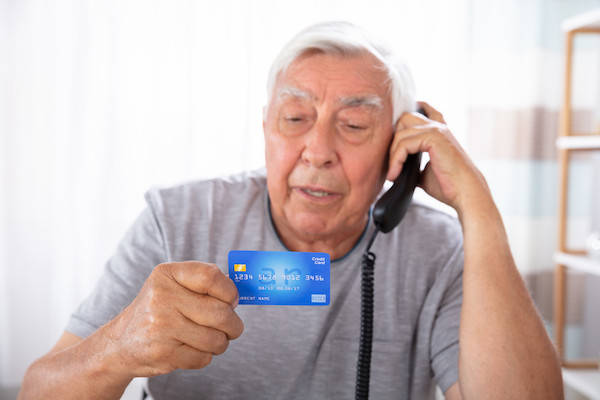Senior Fraud: 5 Ways to Avoid Senior Citizen Scams

According to the AARP, reports of elder fraud have quadrupled over the last 6 years. And in 2017 alone, reports of potential elder fraud totaled $1.7 billion of combined losses.
Losing income to fraudsters is a serious epidemic that only seems to be on the rise. Sadly, a large portion of the problem comes in the form of caregivers.
You trust the people around you, so it can be difficult to recognize if you or your elderly parent is getting scammed. That’s why we’ve compiled this list of the ways to stop a senior citizen scam in its tracks.
Want to know our top 5 tips for preventing elder fraud against you or someone you love? Then this is for you.
1. Avoid Isolation
As with any abuser, elder isolation is a senior citizen scammer’s best friend. If you think something strange is going on, talk to a family, friend, or partner about it. And if you’re a relative of an elderly individual, make sure to check in on your loved one via phone or in person.
2. Internet Safety
Before the age of the internet, fraud was a much less common occurrence. As such, elderly individuals are more likely to trust strangers and digital scammers than younger demographics. Explain to your elderly loved one that they shouldn’t trust everyone who reaches out to them online to avoid a fraudulent disaster.
Navigating and safely using the internet is a skill within itself, and it can be confusing for an elderly person. Here are some quick 101 tips on avoiding e-scams:
- Never give out personal information such as your credit card information, usernames or passwords unless you’re on a trusted website. Remember, fraudsters can send emails that appear to be from a trusted site. If you’re not sure, call or email the company directly to verify.
- Don’t click on any links that seem odd, or are from an unknown source. Scammers are getting creative! A common scam is to send emails with links that seem innocent enough. Instead, a scammer link can install malicious software, or “malware,” onto your device that can steal your information.
- Make sure you have protection against viruses! Read more about what malware is and how to prevent it >>
- Many banks or loan scams offer pre-approved loans for little or no interest. If an offer sounds too good to be true – it likely is!
3. Ask for Advice
After a lifetime of making their own decisions, our elderly loved ones can often overlook their own diminished capacity for decision making. If you’re suffering from dementia or Alzheimer’s, remember to ask for advice from your friends or family. A quick word with your elderly parent can often make the difference in preventing scams.
4. Never Give Out Personal Information
One of the most common types of scams is the mail scam. Fraudsters will send out unsolicited mail, requiring a piece of personal information in exchange for a reward. If you’re concerned about your loved one, educate them about always keeping personal information private.
5. Choose a Caregiver You Trust
Yet another common scam comes in the form of at-home caregiver fraud. From stealing benefit checks out of the mail to pocketing things around your home, caregivers can take advantage of their elderly patients. And if you’re worried about your loved one’s caregiver, it might be time to consider Seniors Helping Seniors.
Provide or Receive Care With Seniors Helping Seniors
Here at Seniors Helping Seniors, we take our time getting to know our caregivers through a careful interviewing process, background check, and personality evaluation. We ensure our caregivers serve with the utmost integrity, compassion, and professionalism.
Are you a retired, active senior looking for an encore career or a paid volunteer opportunity? Sign up to provide care to other seniors in your area. The hours are flexible!
Are you a senior (or do you know a senior) who is looking to receive part-time, non-medical care for help with day-to-day tasks like chores, errands, cooking, etc.? Our employees are seniors themselves, so they can understand your needs best. Contact us today!




